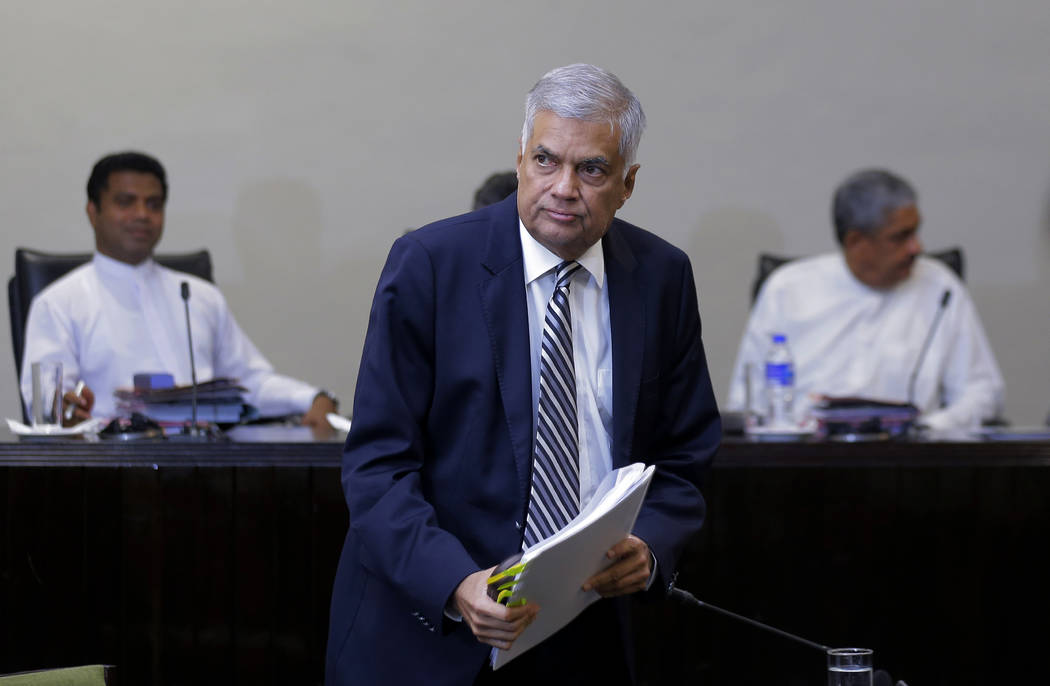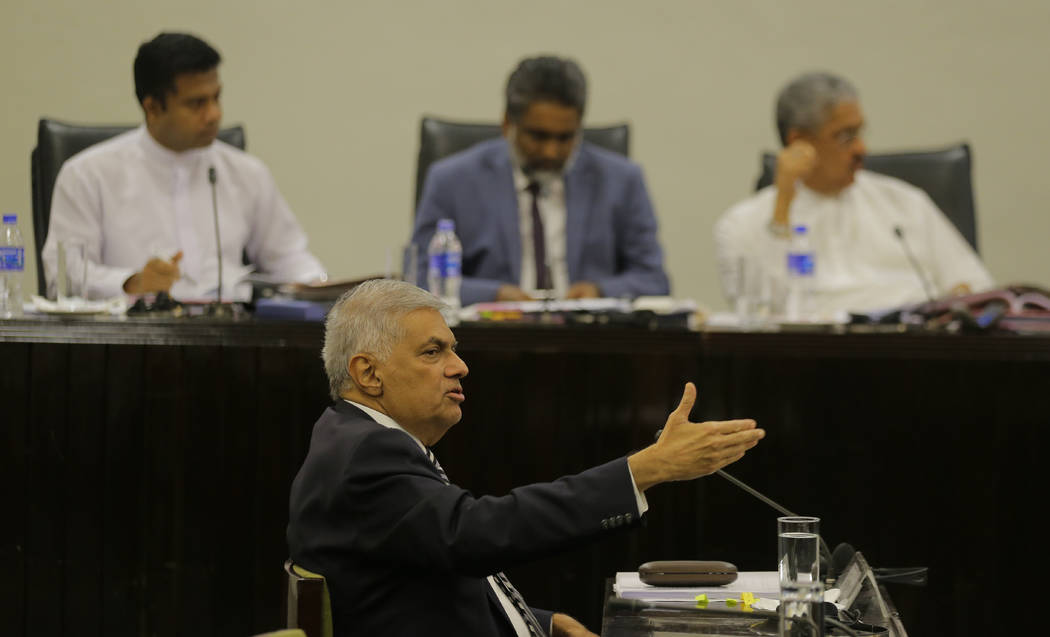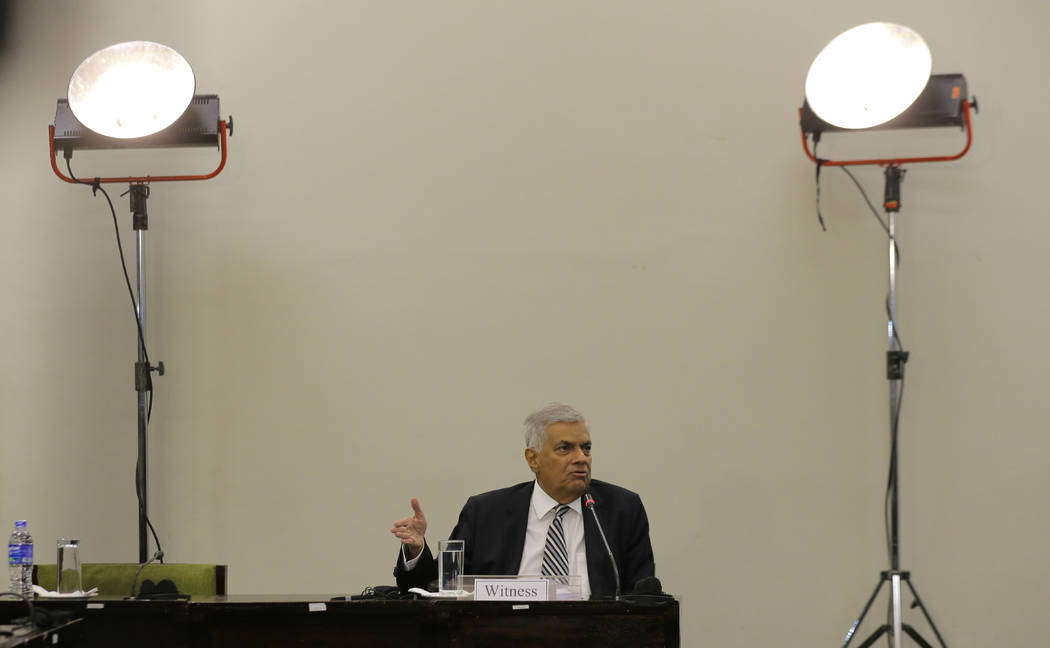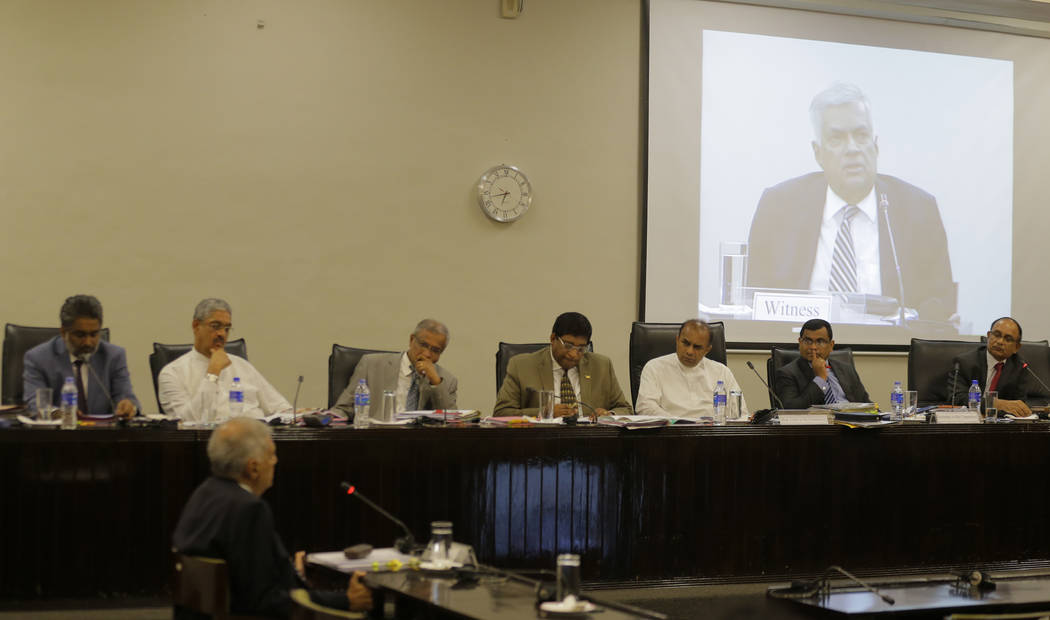Sri Lanka PM: Country must prepare for new terrorism phase
COLOMBO, Sri Lanka — Sri Lanka’s prime minister on Tuesday told a parliamentary committee investigating the Islamic State-inspired Easter Sunday bomb attacks that the country should prepare itself for new types of terrorism.
Existing policing, investigative agencies and laws had experience with ethnic Tamil separatists during Sri Lanka’s civil war, but Sri Lanka must now deal with “a new phase of terrorism,” Prime Minister Ranil Wickremesinghe in his explanation for what the government should do following criticism that the it failed to act on intelligence from foreign agencies before the attacks that killed more than 250 people.
“The terrorism we see today doesn’t have a central organization, there is no need to conduct classes to recruit people. People join through web sites,” he said.
He added: “A team can come and attack…or it can be done by one person if he makes up his mind to drive a lorry and kill 10 people.”
Wickremesinghe said that he proposed to the Cabinet and obtained a report from members to draft new laws to deal with people who travel to fight in foreign wars and who have gone to terrorist training centers. The laws will be based on British laws drafted from the 2000s until now, Wickremesinghe said.
“The whole existence of the internet and the web has made a big difference, this is a sort of phenomena of the last 10 years. Not only us, throughout the world, they are facing how to deal with this? Some countries have offered to help us, UK and Singapore,” Wickremesinghe said.
Police already knew about some suspects prior to the April 21 suicide bomb attacks at three churches and three tourist hotels but the failure to prevent the attacks was the result of the security system failing to track the transition of religious extremists into terrorists, Wickremesinghe said.
He said that intelligence officials had gathered information before the attacks about some of the suspects and that police had evidence against ringleader Mohamed Zahran to charge him only for hate preaching under the International Covenant on Civil and Political Rights. But police at the time could not locate him and he was thought to have fled to India illegally by boat.
Zahran blew himself up at Shangri La hotel in Colombo.
“Certainly there has been a lapse, I would stay the lapse started toward the end of last year, because if they (police) knew a transformation (in religious extremists) was taking place they would have built up on it,” Wickremesinghe said.
Wickremesinghe insisted that he was personally unaware about the prior warnings that had been received and that he has not received a satisfactory answer on why he was not informed.
Sri Lanka still faces a threat even though all members of the group that was directly involved in the conspiracy and the attacks are either dead or arrested, Wickremesinghe said.
Others people who were not involved in the Easter attacks but were indoctrinated and trained may be at large and the government has ordered investigators to arrest and question people who met with members of groups, Wickremesinghe said.
Local Muslim groups National Thowheed Jammath and Jamathei Millathu Ibrahim had pledged allegiance to the Islamic State group and are blamed for the suicide attacks that also wounded more than 500.




















